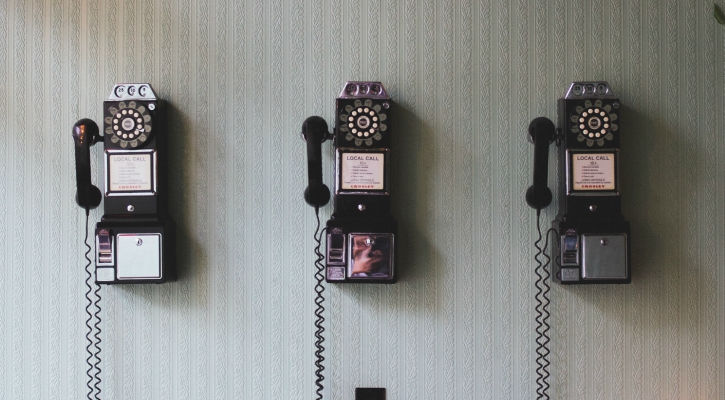Norway jobs: a guide for expats
A handy guide for understanding the job options in Norway for foreigners and expats.

Sometimes hailed as “the most liveable place on earth,” Norway is often coveted for it’s beautiful natural landscape, attracting hundreds of thousands of tourists every year to hike, sail, and fish across the country’s many natural parks and reserves. Urban areas, like Oslo, peek out onto Norway’s natural beauty while providing a cosmopolitan atmosphere in conjunction with the country’s cosy culture-- it’s no wonder so many people are looking to Norway for the next chapter of their lives.
Whether you’re moving to norway to work, retire, or study abroad, relocation can come with some complicated questions. This guide will walk you through everything you need to know about relocating to this special Northern European nation.

Immigrating to Norway comes with different rules for people from different countries.
The simplest process goes to those from EEA member countries. While Norway isn't part of the EU, it's part of the EEA and the schengen zone, meaning access and right to reside in the country is easy for anyone from inside those areas, currently including those from the UK. You should keep in mind that if you are planning on staying in Norway for more than 3 months, you do have to register yourself in Norway.
When you are a student from the EU/EEA the same rule applies, you can come to Norway to study, but you have to register yourself no later than 3 months after you’ve arrived.
In order to register yourself in Norway you firstly fill in an application online on the application portal of the UDI (the Norwegian Directorate of Immigration) and you should book an appointment through that same portal. You will have to bring the filled in application and documents with you to the appointment.
When you are coming to Norway to work, the documents you need to bring with you are:
When you are coming to Norway to study, than you should bring the following documents:
From outside of the EU, including the US and Australia, it’s a bit more complicated. There are two main ways to legally reside in Norway: as part of the direct family of a Norwegian citizen, or as a skilled worker. The latter of the two is arguably the most common, and requires you to have secured a job within the country before you may reside in it. While it's possible to stay in Norway as a tourist before you’re granted a visa, the most common tourist visas are only extended up to 90 days, which is also your time limit to be within the schengen zone.
As the requirements for obtaining a visa can vary, for instance if you are going to work for a Norwegian company, for the Norwegian branch of an international company or if you are self-employed, it’s advisable that you check the, very user friendly, website of the UDI to make sure what the requirements are for your situation.

While the quality of life in Norway is well known, it’s also important to understand how much that quality costs. The following table details some common items to help you get a grasp on how much money you’ll regularly spend once you’ve moved to Norway.
| Cost of Living examples | |
|---|---|
| Inexpensive meal | 170 kr |
| Monthly public transportation pass | 700 kr |
| 1 literof gasoline | 14.73 kr |
| Gym membership | 413 kr |
| Monthly rent, 1 br apartment in city center | 9,800 kr |

One of the biggest and most important steps in supporting yourself financially in Norway is opening a bank account. Known for excellent banking services, you can open an account at any of Norway’s local banks, like Nordea, Norges bank, or DNB ASA. You may prefer to keep all your accounts in one place by banking at a bigger international bank, like Citi, Santander, or RBS.
No matter what bank you choose, they'll probably offer a service for exchanging your home currency into Norwegian krone, though it’s important to check the exchange rate they offer you. While banks have seriously cut down on fees for currency exchange, they often make up for that loss in inflated exchange rates. You can protect yourself by using an online currency converter to see how much you should be getting with the real mid market rate.
If you find you’re getting a bad rate, you can use Wise to seriously cut down on fees and get the mid-market rate, guaranteed. Alternatively, you can also open a Transferwise borderless multi currency account, which allows you to manage your money in 27 currencies. When you use the borderless account, you can convert between the supported currencies whenever you need to, or when the rate is in your favor. From early 2018 you will also be able to get a debit card connected to your borderless account, which will make it even easier to pay towards you life in Norway, but you can also simply transfer your money from your borderless account to your bank account in Norway.

While finding a job is the ticket you need to legally move to Norway, getting one isn’t always that easy. Thanks to an already skilled workforce, many Norwegian companies choose to hire in country. European citizens may have an easier time than Americans, Canadians, or Australians. One of the best things you can do to make yourself competitive on the Norwegian job market is to have a good command of the language.
To begin your job search, the following sites carry a range of cross-industry, English-language listings:

Finding a place to live in Norway can be difficult, depending on the region in which you’re planning to move. While smaller towns will offer fewer rentals overall, you may have access to charming Norwegian houses for as little as €1500 per month. Then again, renting in Oslo will present you with plenty of options-- but they won’t come cheap. If you’re looking for an inexpensive place to live in Norway, the following towns are good places to start:

Healthcare in Norway is public, and visiting the doctor and any other medical needs are free for children under the age of 16. From there, you’ll need to pay a small deductible to access health services, though all in all, healthcare is fairly inexpensive out of pocket.
Finding a doctor in Norway, however, is a little more complicated. Because you’re only allowed to change your GP twice per year maximum, it’s important to find a doctor you like the first time around. The best place to search for a doctor is the Yellow Pages.

Learning at least a little Norwegian will be key to getting around and making friends in the scandinavian country. If you don’t already know Norwegian, apps like duolingo and babbel can go a long way. Alternatively, finding a tutor who is willing to give lessons over video-call is easy on Craigslist.

Making friends is hard anywhere, let alone in a foreign country. Meeting other expats is a great way to feel at home in Norway, and luckily there are plenty of groups that will help you do it. Internations’ expat community, for instance, is highly active, and there are plenty of expat groups on meetup that get together regularly. You should also check with your local bars and restaurants about whether they run expat nights, which are often centered around sports or language exchange.

As adults, we don’t spend too much time thinking about emergency contact numbers, but it’s important to remember that they’ll be different when you get to Norway. It’s a good idea to keep the following numbers in mind.
| Important contacts | |
|---|---|
| Emergency | 000 |
| Fire | 110 |
| Police | 112 |
| Ambulance | 113 |
| US Embassy | (+47) 21 30 85 40 |
| British Embassy | (+47) 23 13 27 00 |
| Australian Embassy (Denmark) | +45 7026 3676 |
While moving to Norway will mean finding a job, once you’ve secured a position the process of moving to Norway is straightforward-- and life once you get there can be great! Good luck with your move to Norway!
*Please see terms of use and product availability for your region or visit Wise fees and pricing for the most up to date pricing and fee information.
This publication is provided for general information purposes and does not constitute legal, tax or other professional advice from Wise Payments Limited or its subsidiaries and its affiliates, and it is not intended as a substitute for obtaining advice from a financial advisor or any other professional.
We make no representations, warranties or guarantees, whether expressed or implied, that the content in the publication is accurate, complete or up to date.

A handy guide for understanding the job options in Norway for foreigners and expats.

Almost 14% of the total population of Norway are immigrants, with one third travelling to Norway specifically to find work. Despite the notoriously high taxes...